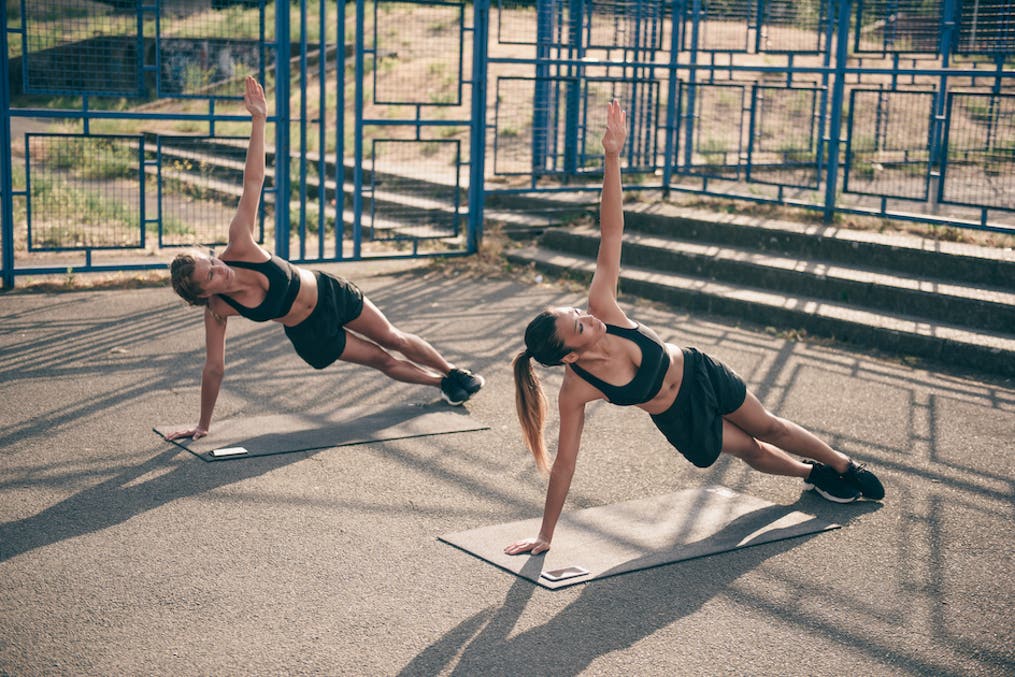It’s February; Valentine’s Day is just around the corner and you’ve got that warm glow of love, but is it affecting your exercise routine?
We’re all aware of the positive impact exercise can have on both our physical and mental health, but are we aware of the impact our emotions and hormones could be having on our exercise and performance? Women are perhaps more noticeably affected by their hormones; back in 2016, Chinese Olympic swimmer, Fu Yuanhui blamed her period for her below-par performance in the 4x100m medley relay. But just as hormones can harm our performance, there are also instances when they can actually enhance it.
This Valentine’s Day, health expert, Leanne Edermaniger takes a look at how some of the emotions that make us feel fuzzy on the inside might be affecting our training.
Motivation
Your motivation to exercise is crucial to working out which training method and style is right for you. For many of us, it’s to achieve personal goals i.e. to fit into that dress, to be healthy or to run a marathon, but there also may be a more fundamental reason; to look good and be happy with our body. Although this may not always be the case, meeting someone new or starting a new relationship is often a reason why people start to work out.
Love comes in many forms and it doesn’t have to just be between life partners. Instead, it can be shared between family members and friends too. In older adults, friends and family can be good motivational factors for encouraging them to start exercising.
However, if a relationship has negative emotions associated with it such as jealousy or conflict, this can reduce concentration, overall performance and reduce motivation too.
Adrenaline
When we fall in love, our body is flooded with feel-good chemicals which can cause our hearts to race, our palms to sweat and our cheeks to flush. One of the chemicals released is adrenaline and, alongside another chemical, norepinephrine, this causes an increased heartbeat, restlessness and preoccupation often experienced during new romances.
Adrenaline is also released by the body when we exercise. Some studies have shown that increased adrenaline levels can increase carbohydrate metabolism and thus increased glycogen (stored glucose) utilisation.
Adrenaline is also useful when preparing to run a race or play a competitive game because it increases the heart rate. As the heart beats faster, our cardiac output also increases which enables more oxygen to be supplied to the muscles, so the body is able to react more effectively to the demands placed upon it.

Testosterone
There is growing evidence that sex hormones may play a role in the differing activity levels between males and females. Testosterone is an androgen and is responsible for the development of male characteristics. It’s found in far larger quantities in men than women. In men, it enables the growth of the reproductive organs during foetal development, as well as sperm production in adult life. It’s also responsible for many of the changes which occur in boys during puberty.
However, testosterone is not only important for both our body and sexual development, but also for adaptations needed for resistance exercise and training. In men, testosterone promotes muscle growth and an increase in muscle strength in response to resistance training. After heavy resistance training, testosterone levels are increased in both men and women.
Can love affect your athletic performance?
One study has shown that being in love can help athletic performance. In a questionnaire, athletes believed their sporting performance was enhanced when they were in love. Professional athletes are focussed on the rewarding outcomes of progressing in their sport and the success which comes with it. Therefore, when these athletes fall in love and the system related to reward and motivation is activated, their athletic performance may either be enhanced or reduced.
Let's recap:
Love can really benefit your exercise programme. But love doesn’t have to necessarily be romantic; the love and support of family and friends can promote the release of positive hormones and significantly boost performance.
References
- Bowen, R, S et al. (2011). Sex Hormone Effects on Physical Activity Levels: Why Doesn’t Jane Run as Much as Dick? Sports Med: 1(4), pp 73-86.
- Campbell, K et al. (2016). Does Love Influence Athletic Performance? The Perspectives of Olympic Athletes. Rev Eur Stud: 8(2), pp 1-7.
- Loyola University Health System. (2014). What Falling in Love Does to Your Heart and Brain. Available at: https://www.sciencedaily.com/releases/2014/02/140206155244.htm
- Steltenpohl, C, N et al. (2018). Me Time, or We Time? Age Differences in Motivation for Exercise. Gerontologist: 00(00), pp 1-9.
- Society for Endocrinology. (2018). Adrenaline. Available at: http://www.yourhormones.info/hormones/adrenaline/
- Society for Endocrinology. (2018). Testosterone. Available at: http://www.yourhormones.info/hormones/testosterone/
- Vingren, J, L et al. (2012). Testosterone Physiology in Resistance Exercise and Training. Sports Medicine: 40(12), 1037-1053.
- Watt, M, J et al. (2004). Adrenaline Increases Skeletal Muscle Glycogenolysis, Pyruvate Dehydrogenase Activation and Carbohydrate Oxidation During Moderate Exercise in Humans. The Journal of Physiology: 534(1).